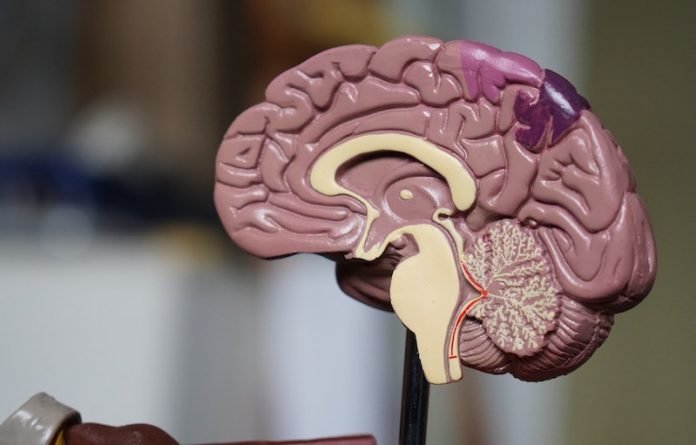
In a study from the University of Virginia, scientists found cholesterol in the brain may play a key role in the development of Alzheimer’s disease.
They found that cholesterol produced by cells called astrocytes is required for controlling the production of amyloid beta, a sticky protein that builds up in the brains of patients with Alzheimer’s.
While cholesterol is often associated with clogged arteries and heart disease, it plays important role in a healthy body.
The body makes cholesterol naturally so it can produce hormones and carry out other important functions.
The protein accumulates into insoluble plaques that are a hallmark of Alzheimer’s disease.
Many efforts have targeted these plaques in the hope that removing or preventing them could treat or prevent Alzheimer’s.
The new findings offer important insights into how and why the plaques form and may explain why genes associated with cholesterol have been linked to increased risk for Alzheimer’s.
The results also provide scientists with important direction as they seek to prevent Alzheimer’s.
The work also sheds light on the role of astrocytes in Alzheimer’s disease.
Scientists have known that these common brain cells undergo dramatic changes in Alzheimer’s, but they have been uncertain if the cells were suffering from the disease or contributing to it. The new results suggest the latter.
In the study, the scientists found that astrocytes help drive the progression of Alzheimer’s by making and distributing cholesterol to brain cells called neurons.
This cholesterol buildup increases amyloid beta production and, in turn, fuels plaque accumulation.
The team found blocking the astrocytes’ cholesterol manufacturing “robustly” decreased amyloid beta production in lab mice.
It’s too soon to say if this could be mimicked in people to prevent plaque formation, but the researchers believe that further research is likely to yield important insights that will benefit the battle against Alzheimer’s.
If you care about Alzheimer’s disease, please read studies about the blood test that can predict dementia, Alzheimer’s 5 years early, and new breakthrough in Alzheimer’s disease diagnosis and treatment.
For more information about brain health, please see recent studies about personality traits that may protect you from Alzheimer’s disease, and results showing that lack of this stuff could be the key to Alzheimer’s disease.
The study was conducted by Heather A. Ferris et al and published in the Proceedings of the National Academy of Sciences.
Copyright © 2022 Knowridge Science Report. All rights reserved.




